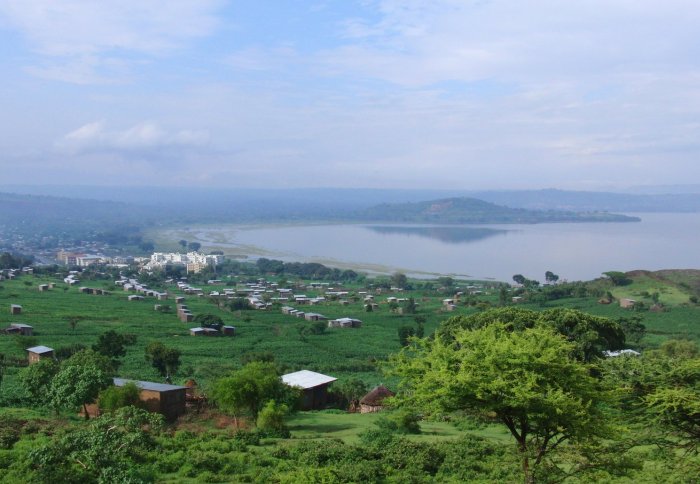Ethiopia's National School-Based Deworming Programme To Treat 16.5 Million

Ethiopian Federal Ministry of Health (FMOH) launches the national control programme against schistosomiasis and soil-transmitted helminths (STH) today
The Ethiopian Federal Ministry of Health (FMOH) is launching the national control programme against two neglected tropical diseases, schistosomiasis and soil-transmitted helminths (STH), on 23rd November at a ceremony in Awassa in the Southern Nations, Nationalities, and Peoples’ Region.
In the first deworming round, health extension workers and teachers will administer treatments to 16.5 million school-age children against STH in 459 woredas (districts), and to a subset of 6.5 million school-age children against schistosomiasis in 189 woredas across the country’s 11 regions.
Between 2015 and 2020 the programme will distribute more than 100 million treatments in all endemic areas of the country with the aim of eliminating schistosomiasis and STH-related morbidity. In future years the programme will look to expand treatment to adults and preschool-aged children.
The national programme is implemented by the Ministry of Health in partnership with the Ministry of Education and the Ethiopian Public Health Institute. It is part of the Ministry of Health’s broader plans to scale up control of other NTDs, such as lymphatic filariasis, podoconiosis, trachoma, and visceral leishmaniasis by the end of 2016.
Schistosomiasis and STH are significant public health burdens in Ethiopia. They cause anaemia, reduced nutrient uptake, malnutrition, stunting and wasting, and decreased school attendance. Chronic cases lead to significant organ damage to the liver, bladder, and spleen, intestinal obstruction, bladder cancer, increased HIV transmission, and death. Ethiopia has the fifth-highest worm burden among school age children in the world, and has been identified as high priority country for the control of helminth infections by international organisations such as the World Health Organization, the STH Coalition, and the Global Schistosomiasis Alliance.
The Director of the Disease Prevention and Control Directorate at the Federal Ministry of Health, Dr Amha Fantaye, notes that “this national programme demonstrates the Ministry of Health’s commitment to eliminating worm-related morbidity for the tens of millions of people living in schistosomiasis and STH-endemic areas.”
Michael French of the Schistosomiasis Control Initiative, the technical assistance provider to the government of Ethiopia, notes, “Ethiopia's national deworming programme shows the strong leadership and a clear vision of the Ministry of Health. It is also a testament to the flexibility of funders and partner organisations. We are a step closer to reaching the WHO target of treating 75% of the 870 million children around the world at risk of parasitic worms by 2020."
The programme is funded by a consortium of partners including The END Fund, the Children’s Investment Fund Foundation, the UK aid agency DFID, as well as a range of private donors. Two NGOs, the Schistosomiasis Control Initiative and Evidence Action, provide technical assistance to ensure high-quality programme delivery. Deworming drugs are donated by Merck KGaA (Praziquantel for schistosomiasis) and Johnson and Johnson (Mebendazole for STH) through the WHO drug donation programme.
Contact:
Biruck Kebede - Ethiopian Federal Ministry of Health NTD Case Team Leader (biruck1@gmail.com)
Michael French - Schistosomiasis Control Initiative, Senior Programme Manager (michael.french@imperial.ac.uk)
Article text (excluding photos or graphics) © Imperial College London.
Photos and graphics subject to third party copyright used with permission or © Imperial College London.
Reporter
Mrs Alexandra Grainger
School of Public Health